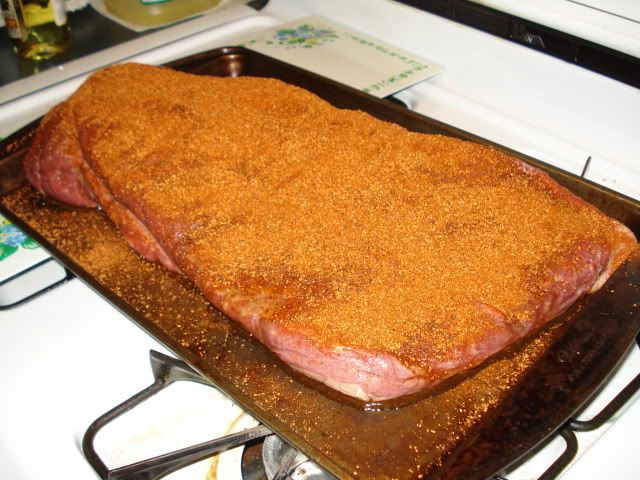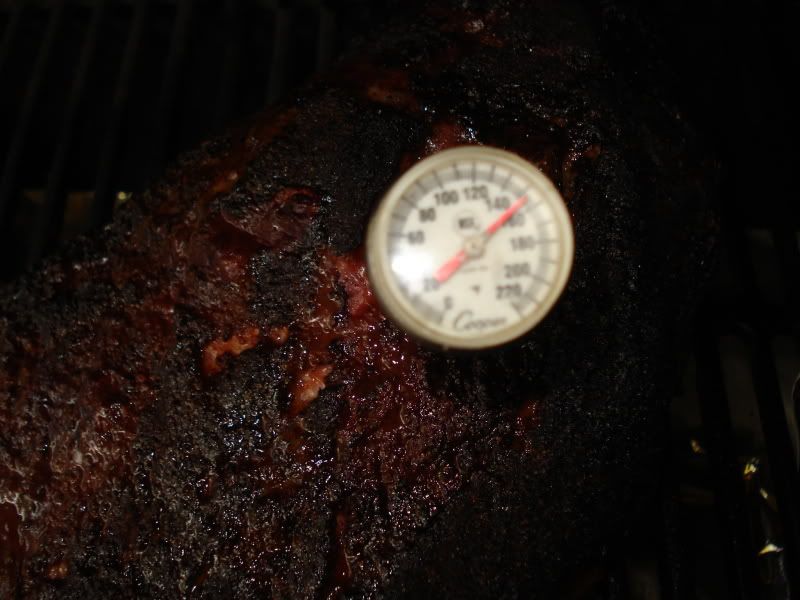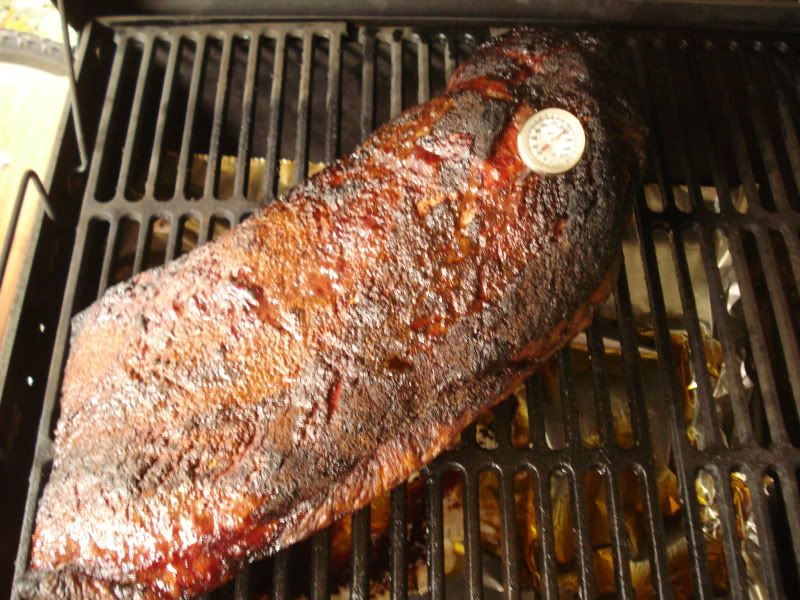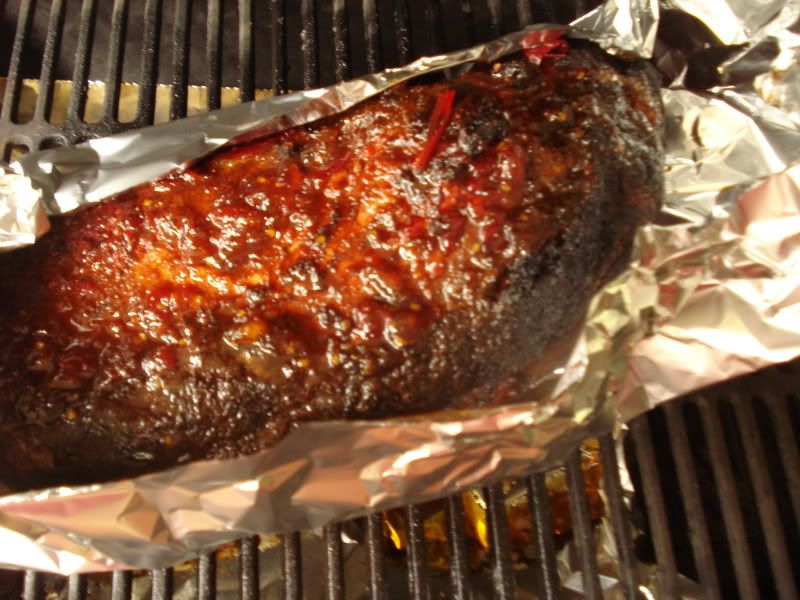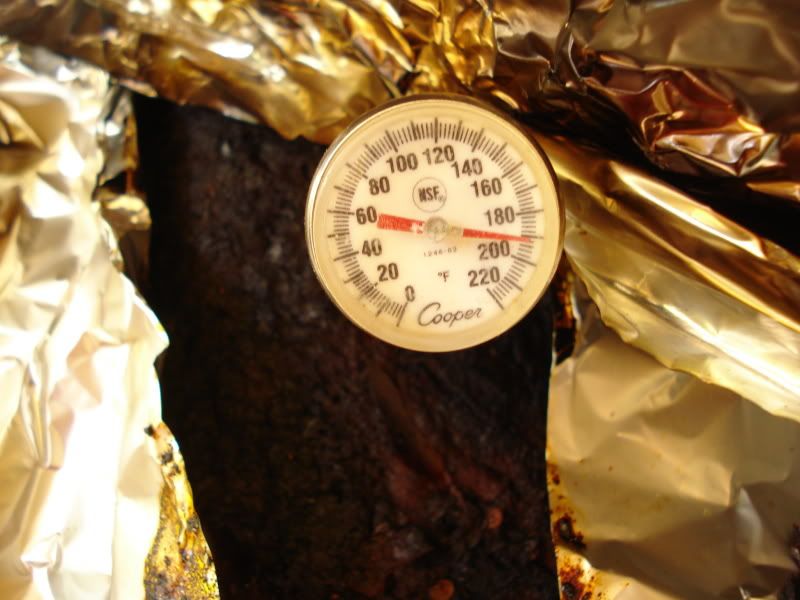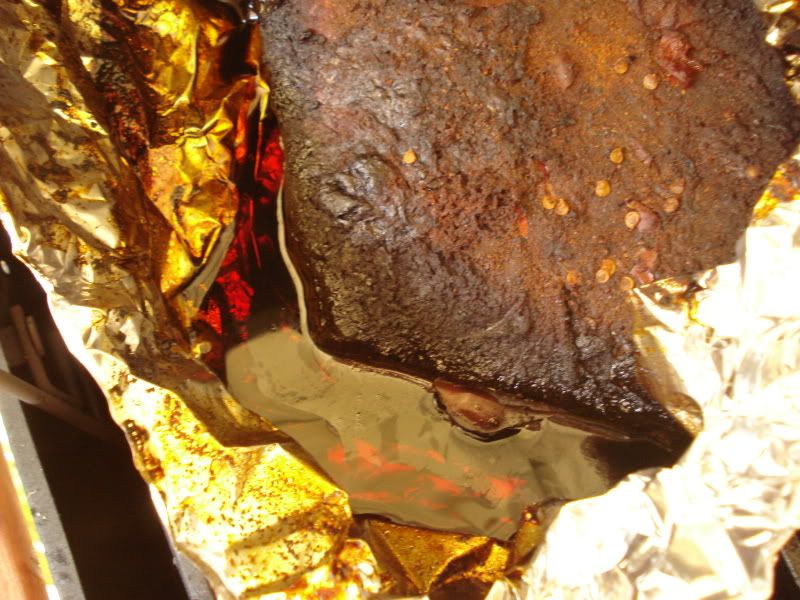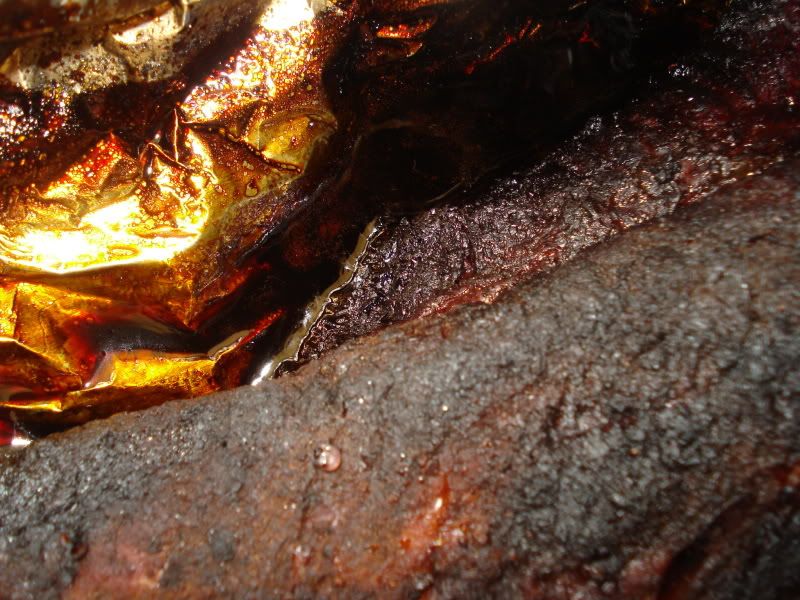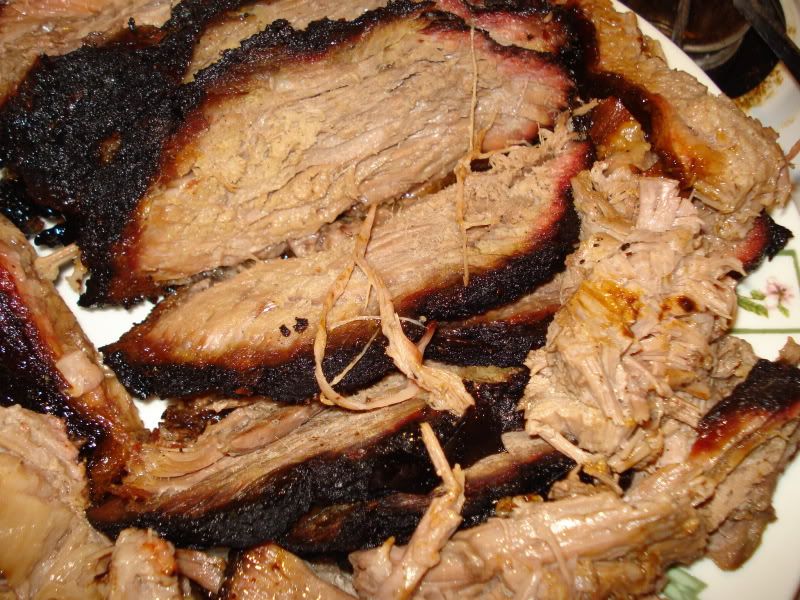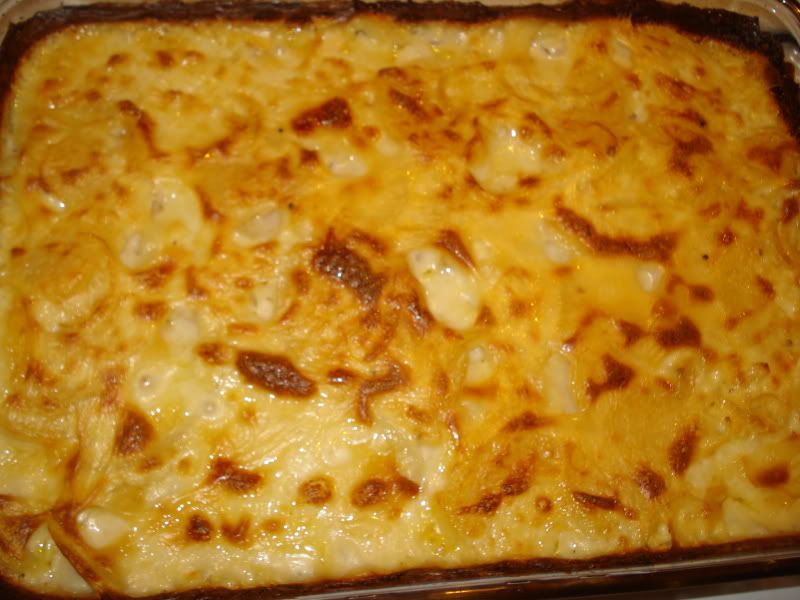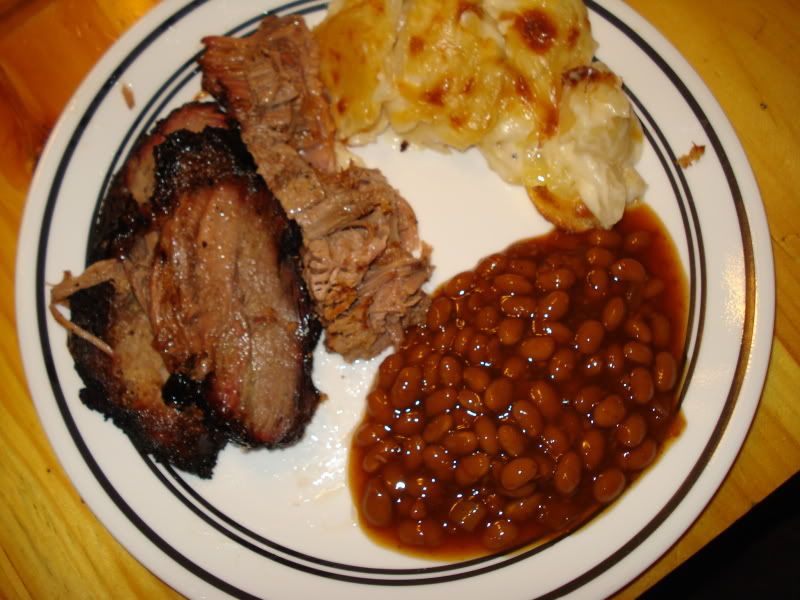and today is Friday - no meat day................

it looks like you not only had a great meal but you can see how fork tender it is!
can I ask a question please?
don't get me wrong - but
(allow me to quote

Cut the leftover brisket into meal size portions and vacuum seal it along with a few cubes of frozen juice. Then next time ya get a hankering for brisket, take the bag from the freezer drop it into a pan of boiling water to re-heat it and in no time you've got nice hot brisket and it tastes just as it did the day you smoked it. that's actually a trick a lot of BBQ caterers use to prepare a lot of meat for a gig. This way it's ready when you need it to be.
I don't believe in boiling in plastic bags -
I do not believe in microwaves, nor do I believe in their plastic cooking dishes and any plastic film that is used in micro waving. And don't microwave anyway. It creates free radicals -- the precursors to cancer -- in your food.
Plastic is made from petroleum.
Cling wraps are nothing but PVC (polyvinylchloride)!
Most North Americans urinate plastics. Sperm counts are at an historic per capita low. Cancer is an epidemic. Birth deformities, sex organ abnormalities and eventual cancers are becoming more common -- all traceable to certain chemical exposures to the fetus. If the human race is not driven extinct by nuclear holocaust or complete distortion of the climate, it may happen through wonderful plastic and other petrochemicals.
There are no safe plastics. All plastics migrate toxins into whatever they contact at all times. It does not matter if it is water- or oil-based; hot or cold; solid or liquid.
Clear plastic food wrap contains up to 30% DEHP [di(2-ethylhexyl) phthalate]. This substance is also in intravenous blood bags. This poison was identified by the State of California for its Proposition 65 list of carcinogens and mutagens, but industry pressure got the listing weakened.
In the middle of the Pacific Ocean, it was found that 1,000,000 times more toxins are concentrated on the plastic debris and plastic particles than in ambient sea water;
Six times as much plastic per weight than zooplankton is in any given amount of sea water taken from the middle of the Pacific Ocean;
Triclosan, in plastics as well as antibacterial soaps, deodorants, toothpastes, cosmetics, and fabrics, is shown to cause health and environmental effects and compound antibiotic resistance. Researchers found that when sunlight is shined on triclosan in water and on fabric, a portion of triclosan is transformed into dioxin.
Migration from all seven categories of plastic designated with numerals on packaging, including the recyclable types 1 and 2, are (partial list): Acetaldehde, antioxidants, BHT, Chimassorb 81, Irganox (PS 800, 1076, 1010), lead, cadmium, mercury, phthatlates, and the acknowledged carcinogen diethyl hexyphosphate.
Many more such additives are often present, creating in our bodies synergisms that can be 1,600 times as strong as an estrogen imitator/endocrine disruptor/single chemical may be.
Chemicals from plastic wrap could migrate, or leach, from the plastic into fatty foods such as cheese and meat. These chemicals may interfere with the normal functioning of the hormonal system. Studies in animals show possible links between plastic wrap and reproductive problems, birth defects, and some forms of cancer. Children experience an increased level of risk as compared to adults due to the small size of children’s bodies and to the on-going development of their bodies.
Not all plastics are considered to pose the same health risks. It is important to note that plastic bags are not considered to be problematic. Of greater concern are plastic wraps and plastic containers.
Some plastic cling wraps use a plasticizer known as DEHA which has been shown to be an endocrine disrupter in rats. DEHA use has been banned in Great Britain, but not in the United States. It is often difficult to get information from suppliers about the DEHA content of their product.
Household plastic wraps made from polyvinyl chloride (PVC), such as Glad Microwave Wrap, Saran Classic (formerly Saran Wrap), and Reynolds Plastic Wrap are known to contain DEHA. Wraps made from polyethylene, including Glad Cling Wrap, Saran with Cling-Plus (formerly Handi-Wrap), and plastic bags made by Glad, Hefty, and Ziploc are free of this and other chemicals considered to be problematic.
Many plastic products carry a recycling code on the bottom of the container. By reading those codes and referring to this list, consumers can make informed choices in their use of plastics. The most common plastics, #1 PETE or PET and #2 HDPE, are considered the least harmful at this time. Also considered low risk are #4 LDPE and #5 PP.
Highest on the list to avoid, due to their ability to leach questionable chemicals into foods, are
#3 PVC or V, polyvinyl chloride
#6 Polystyrene, better known by its brand name Styrofoam, and
#7 Other, usually a polycarbonate.
Most Rubbermaid and Tupperware containers are considered acceptable with two exceptions: Rubbermaid Clear Classics container bases and Tupperware’s Rock ‘N Serve containers.

